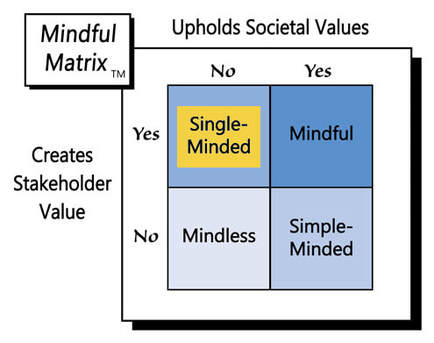author of Honorable Influence - founder of Mindful Marketing
I recently received an email from OpenTable in which the well-known reservation app announced an innovative partnership with the suddenly famous AI bot ChatGPT:
“We’re collaborating with the internet’s favorite chatbot to make finding the perfect table as easy as texting your best friend. Soon you can ask ChatGPT for restaurant recommendations for the perfect family brunch spot, a lively rooftop for a big group, or a romantic table for 2, and you’ll received recommendations with a direct link to book in seconds.”
It’s an intriguing proposition – asking a chatbot that doesn’t have tastebuds or emotions, let alone a significant other, to suggest a restaurant for a romantic dinner.
Virtual beings aren’t just recommending what to eat; they’re also suggesting what to wear. The 170-year-old jeans maker Levi’s recently grabbed headlines when it announced plans to increase diversity in its advertising by employing AI clothing models.
But wait, there’s more! Marketing technology guru Shelly Palmer has compiled a list of companies using virtual influencers to build their brands, which includes many notables such as Alibaba, IKEA, League of Legends, Lux Shampoo, Pacsun, and Puma. As the science and acceptance of AI continues to advance, all signs point to a baby boom of virtual brand endorsers.
Over the past few months, millions of people have turned to ChatGPT and some similar AI bots for answers, often to factual questions about:
- general knowledge and information, such as definitions, historical events, and scientific facts
- technology, such as how to use a particular software or troubleshoot a technical problem
- health and medicine, such as symptoms, treatments, and side effects of various conditions
- current events, such as news updates and breaking news
For those kinds of objective answers, it certainly makes sense to leverage machine learning, which can scour “a colossally large repository of text” and very quickly and adeptly “parse queries and produce fully-fleshed out answers and results based on most of the world's digitally-accessible text-based information.”
There’s a difference, though, between returning a list of “all fine-dining restaurants in Denver” and recommending a few that seem like the best fit for the particular diner’s occasion, palate, price range, and other personal preferences.
Companies wouldn’t use AI-powered artificial endorsers if they didn’t have advantages, but as this piece has already suggested, they also have disadvantages. Here’s what this human marketer sees as the pros and cons of virtual spokespeople.
Pro 1 – Affordability: Firms don’t have to pay artificial influencers, but they do need to pay for 3-D modeling which can be about $75,000 for a six-month contract. That’s not cheap but it is cost-effective compared to the deals demanded by A-list celebrities like Taylor Swift ($26 million from Diet Coke) and David Beckham ($160 million lifetime from Adidas).
Con 1 – Apathy: Jobs for humans are often an issue in conversations about AI. Virtual spokespeople don’t care that they might be replacing people. The companies that make and use the avatars may or may not feel conflicted, but at least some humans are needed to do the 3-D modeling and help manage the virtual endorsers.
Pro 2 – Adaptability: Firms can program an artificial endorser to do and say anything they want, as well as look anyway they want. These spokesbots will always deliver their lines perfectly, they’ll never cause PR headaches because of missteps in their social lives, and they’ll always maintain the ‘ideal’ weight, hair color, and skin tone.
Con 2 – Inauthenticity: Because they’re nonautonomous beings that speak others’ words, virtual endorsers can’t be truly authentic. One might argue that human spokespeople also parrot what they’re told to say , but at least they have a conscience and can decide, ‘The money is very attractive, but I can’t support this company/product.’
Pro 3 – Omniscience: As suggested above, AI-powered applications can scan and assimilate incredible amounts of information. Although they can’t literally know everything, and they sometimes make mistakes, their knowledge and accuracy will keep getting better and exceedingly surpass that of humans.
Con 3 – Inexperience: Even as virtual endorsers may have unparalleled knowledge, they have no real experience. As mentioned above, ChatGPT can’t eat food or wear jeans, so how can it really recommend restaurants or clothing?
Pro 4 – Disclosure: When we see ads with endorsers, whether they’re real people or digital beings, we instinctively know that they’re sharing a perspective that’s at least somewhat biased toward the advertised product. In some ways, the presence of virtual beings, which are still relatively uncommon, makes it even clearer that the communication is not impartial.
Con 4 – Deception: Although leading people to believe that their endorsement is unbiased is a possible problem for both human and animated beings, artificial endorsers hold greater potential to mislead, to the extent that their very life-like looks and mannerism make them seem real. This realism ties back to the issue of inauthenticity (Con 2) and represents the greatest potential ethical issue for spokesbots.
As described above, their lack of volition means artificial endorsers can never really say what’s on their mind, or be totally truthful. When people know a spokesperson isn’t human, they can account for that inauthenticity by raising their perceptual defenses and being more leery of what’s said. However, if consumers believe a spokesbot is a real person, that added skepticism will never arise.
Right now, most artificial endorsers still appear fake, although some, like Puma’s Maya look and act incredibly real. In fact, many have wondered if she is human, and some have even expressed a romantic interest in her.
As time goes on and technology advances, spokesbots will become more and more indistinguishable from real people. Organizations that employ artificial endorsers should let the public know that their digital creations aren’t real through some kind of disclaimer (e.g., “Maya is a virtual person”). Otherwise, consumers may give the bots’ communication more credence than it deserves since they’re not real humans who have genuinely judged companies’/products’ merits and made deliberate decisions that they are worthy of endorsement.
Over millennia of buying and selling products, people have known that it’s difficult for sellers to be truly objective about their wares, but buyers also know that spokespeople must make a conscious choice to endorse. Organizations that attempt to sidestep those consumer perceptions by passing off their spokesbots as real, autonomous people are endorsing “Single-Minded Marketing.”
Learn more about the Mindful Matrix.
Check out Mindful Marketing Ads and Vote your Mind!




 RSS Feed
RSS Feed